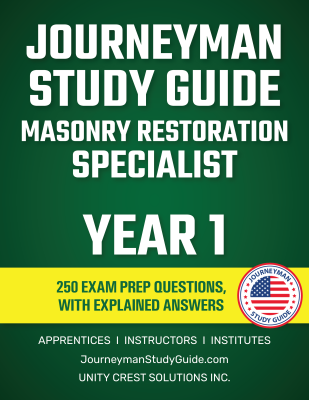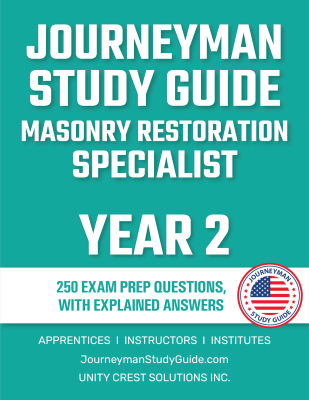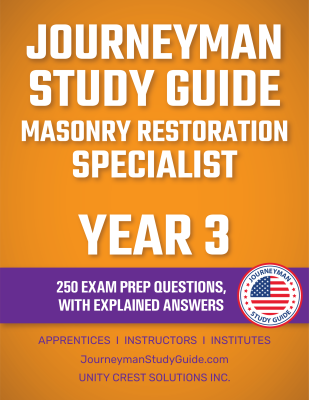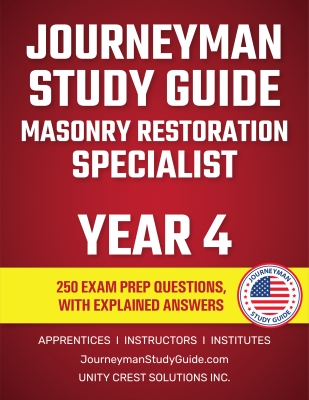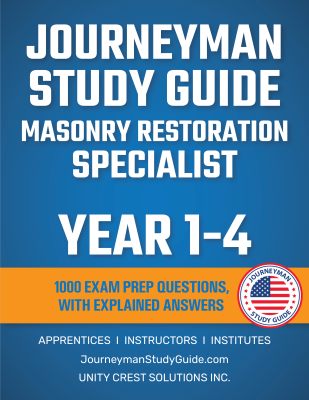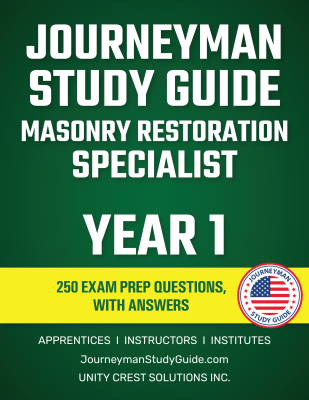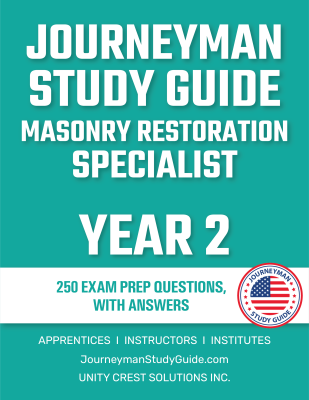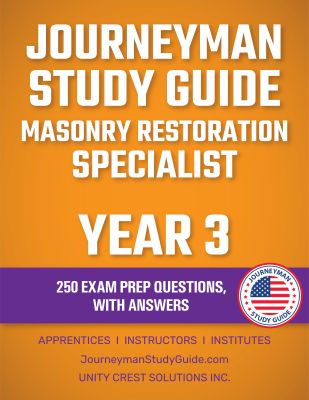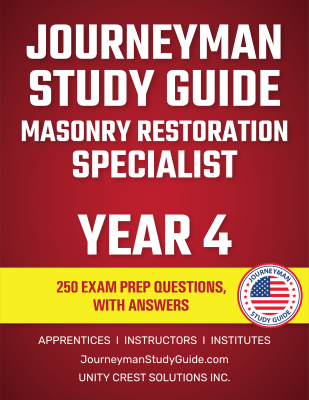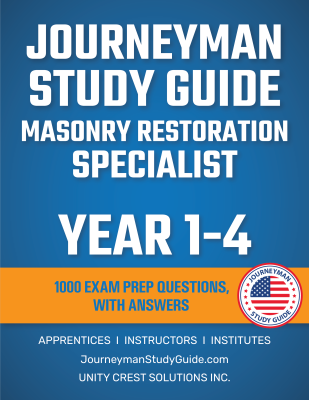Questions, Answers, & Explanations
Get clear explanations behind every answer, perfect for deeper learning and more thorough exam preparation.
Site Updates in Progress: Things might look different as we work on enhancing your experience.
Historic Building Preservation
Safeguarding New York City’s Architectural Legacy
New York City is a living museum of architectural history, home to iconic landmarks like the Flatiron Building, Grand Central Terminal, and brownstone-lined streets in Brooklyn and Harlem. These structures require expert care to stand the test of time. This is where Masonry Restoration Specialists step in. For those pursuing certification in this essential trade, our Journeyman Masonry Restoration Specialists Study Guide New York City prepares you to work on preservation projects throughout the five boroughs.
The Role of Masonry Restoration in New York City
Masonry restoration in New York City goes far beyond basic repairs. Specialists are responsible for maintaining the integrity and appearance of buildings that often date back more than a century. Whether it’s repointing deteriorated mortar joints, cleaning soot-stained facades, or replacing damaged stone, these tasks require precision, knowledge of historic materials, and strict compliance with city codes and preservation standards.
Key responsibilities in New York City masonry restoration include:
Why Certification Matters
To succeed in New York's restoration market, tradespeople need both field experience and proper certification. Being a journeyman masonry restoration specialist demonstrates mastery of complex restoration methods, safety practices, and code adherence.
Our Journeyman Masonry Restoration Specialists Study Guide NY is specifically designed to support exam preparation for:
What's Inside the Study Guide
Our guide isn't just theory—it's practical training with New York City relevance. Here's what you get:
These tools focus on restoration techniques applicable to landmark buildings and locally sourced materials, offering the edge needed to pass certification.
Working in the New York City Preservation Sector
The city’s historic preservation industry is growing steadily. With over 36,000 landmarked properties and entire neighborhoods designated as historic districts, there's constant demand for skilled masonry professionals. Many restoration projects are funded by the New York City Landmarks Preservation Commission (LPC), which requires licensed contractors for structural and cosmetic work.
As a certified journeyman, you may work for:
Tools, Materials, and Methods
Masonry restoration specialists in New York City must work with both traditional and modern materials. Common tools and technologies include:
Understanding how materials like lime mortar, sandstone, and brick weather over time is crucial to proper restoration. Our study guide includes reference material and visuals to help identify these materials on-site.
Local Codes and Preservation Standards
New York City projects often require approval from both the Department of Buildings (DOB) and the Landmarks Preservation Commission. A licensed journeyman needs to know:
We align our study content with these municipal standards to help you pass exams and perform confidently on restoration projects.
Union and Apprenticeship Support
Many masonry professionals in New York City are trained through Bricklayers & Allied Craftworkers Local 1 NY. Their apprenticeship and journeyman upgrade programs are aligned with both historic and modern methods. Our study guides complement these union training standards, offering additional at-home practice and test simulations.
Why Choose Our Study Guide?
Our content was developed in collaboration with local restoration contractors and examiners. Benefits include:
Whether you’re restoring a 19th-century courthouse or repointing a Brooklyn brownstone, our Journeyman Masonry Restoration Specialists Study Guide helps you get there faster.
Get clear explanations behind every answer, perfect for deeper learning and more thorough exam preparation.
Quick and easy practice to test your knowledge anytime, anywhere—ideal for simple, on-the-go preparation.

